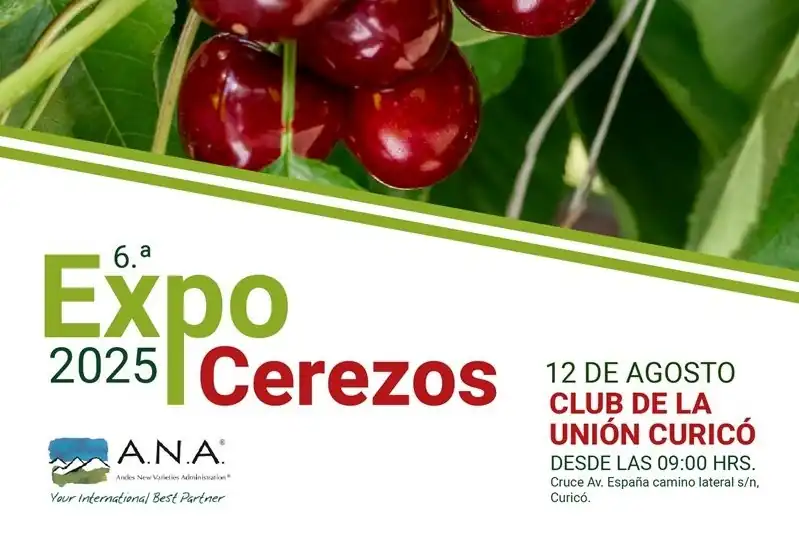The sweet cherry industry in south-central Chile is considerably hampered by spring frosts. In addition to traditional late frost protection systems, a possible strategy could be the application of phytoregulators, which are able to prolong bud dormancy, thus protecting them from low temperatures.
However, some researchers point out that these products can cause flower abscission, resulting in a reduced rate of fruit set and fruit harvested. A further alternative was therefore sought, and it was found in foliar biostimulants, which can increase the resistance of buds to the winter cold and delay flowering, without adversely affecting production.
Researchers from the Faculty of Agricultural Sciences at the University of Talca (Chile) studied the effect of foliar application of the biostimulant Retard Cherry® before leaf fall. The delay of flowering, fruit set and fruit drop rate, yield and fruit quality were then evaluated in cv. 'Regina' and 'Sweetheart'.
The use of Retard Cherry® resulted in a 6-8 day delay of full flowering among the treated cultivars compared to the control group. However, the harvest date remained unchanged. In both treatments, the climatic conditions favoured high fruit set (37-49%) and low fruit drop (63-70%).
In generale, la maturazione dei frutti si distingue per un aumIn general, fruit ripening is characterised by a substantial increase in both weight and size, which can be attributed to an enlargement of the cell structures leading to a decrease in firmness. While the sugar content increases, the acids remain relatively stable, the colour of the sweet cherries undergoes the most significant changes and is therefore a decisive factor in determining the harvest date.
Regarding fruit quality, no noticeable changes were found in terms of size and soluble solids concentration. However, a reduction in firmness was observed, particularly in the 'Regina' variety and a slightly lower degree of colouration in 'Sweetheart'.
This result is in line with previous research, which documented that the application of Retard Cherry® significantly prevented colour progression in 'Sweetheart' cherries. In addition to enabling harvest postponement in sweet cherries, gibberellic acid has been shown to improve fruit size, texture, and sugar content.
Gibberellic acid could therefore serve as a complementary tool to the foliar biostimulant Retard Cherry® to prolong the harvest window, while ensuring higher quality and higher priced fruit. Consequently, it can be inferred that the application of Retard Cherry® to 'Sweetheart' and 'Regina' sweet cherries is an effective method to postpone the flowering phase, thus avoiding late frosts and saving the harvest.
The fruit set and drop rates were not affected by the treatment and, although flowering was delayed, the harvest date remained unchanged. At harvest, fruit from trees treated with Retard Cherry® showed similar values in fruit size and sugar content.
Cherry® showed similar values in fruit size and sugar content. The only disappointment was the reduced fruit firmness in 'Regina' and the decrease in colour for 'Sweetheart' compared to fruits harvested from control trees. Further investigations will be necessary to validate the results, as this research was conducted under climatic conditions.
Source: Yuri, J. A., Palma, M., Sepúlveda, Álvaro, Sánchez-Contreras, J., & Moya, M. (2024). Use of the biostimulant Retard Cherry® as a strategy to delay blooming period in sweet cherry trees. Advances in Horticultural Science, 37(4), 427–432. https://doi.org/10.36253/ahsc-13659.
Image: SL Fruit Service
Melissa Venturi
University of Bologna (IT)
Cherry Times - All rights reserved










